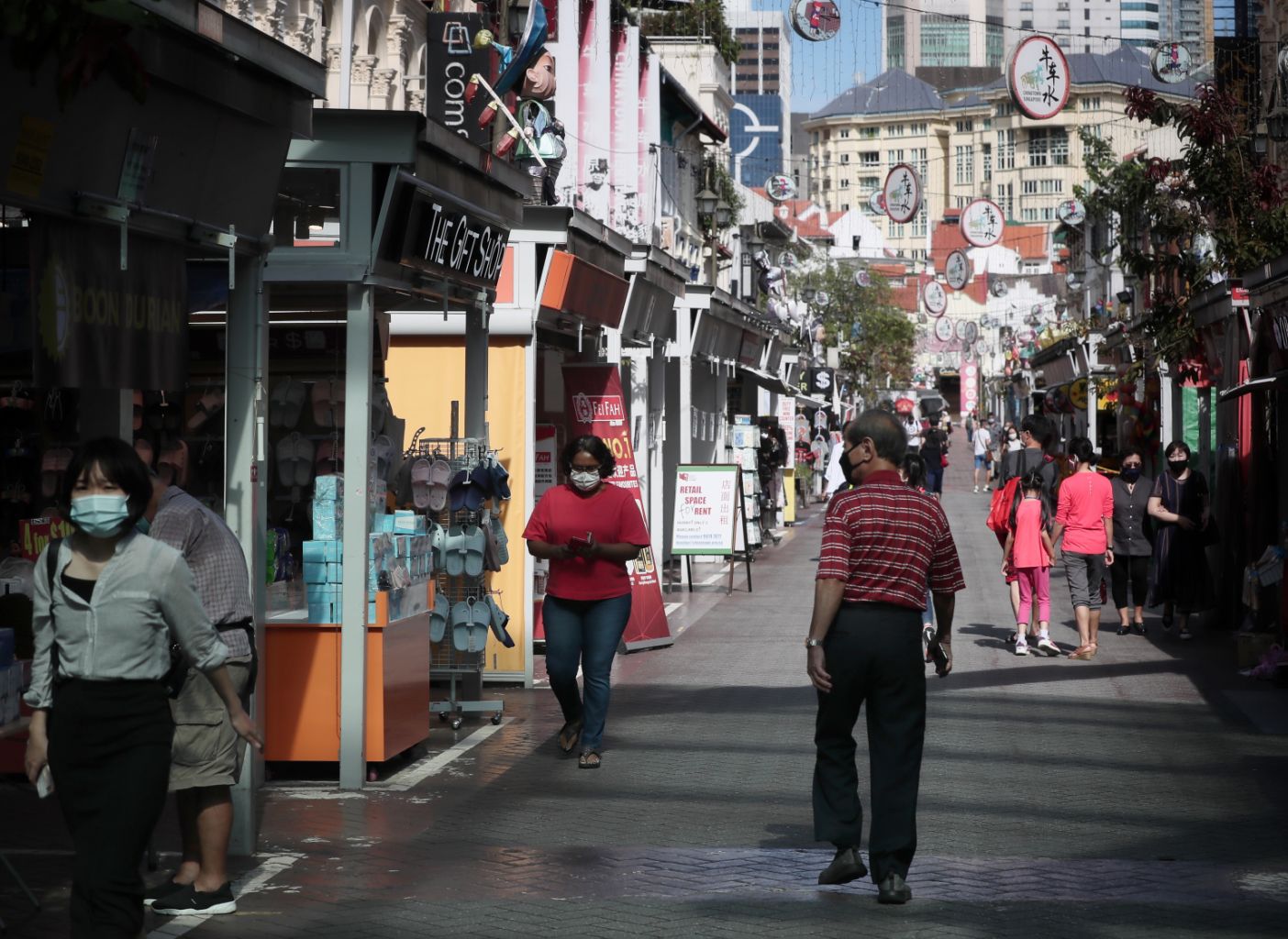Budget debate: JSS rolled out as 'broad-based scheme without need for onerous applications', says Lawrence Wong
Sign up now: Get ST's newsletters delivered to your inbox

The Jobs Support Scheme has especially helped small and medium-sized enterprises (SMEs), said Mr Lawrence Wong.
PHOTO: ST FILE
SINGAPORE - The Covid-19 pandemic took its toll on firms across the board and the Jobs Support Scheme's (JSS) main priority was to ensure that all of them received timely support, Second Minister for Finance Lawrence Wong said on Friday (Feb 26).
The JSS was thus rolled out as a "broad-based scheme without the need for onerous applications", which especially helped small and medium-sized enterprises (SMEs), he told Parliament during the debate on ministries' budgets.
Mr Wong said that the scheme was introduced at the start of the crisis, when the public health and economic situation was highly fluid.
Firms were also facing immediate cash flow issues, said Mr Wong who was responding to a question from MP Foo Mee Har (West Coast GRC) on how the Government prioritised assistance during the pandemic , and why the JSS was provided across the board.
Mr Wong said that the Government stepped down broad-based support measures and pivoted towards more targeted, sector-specific measures as the economic situation improved and actual data on sectoral and firms' performance came to light.
Additional targeted measures, like the SingapoRediscovers Vouchers, were also introduced to stimulate domestic tourism, said Mr Wong.
Other support packages were also rolled out for sectors such as aviation, point-to-point transport and arts and culture, he added.
"This tiered approach has enabled us to bring targeted relief to business owners and the workers they are responsible for," said Mr Wong, who is also Education Minister.
Preliminary data suggests that the JSS has reduced job losses in vulnerable firms, while loan schemes have supported over 20,000 firms.
Echoing Mr Wong, Second Minister for Finance Indranee Rajah said: "In response to Covid-19, our priority was to flow assistance to those affected, as quickly as possible."
For example, the CPF Board and Inland Revenue Authority of Singapore enhanced their processes to speed up disbursements of the JSS, which enabled the scheme's payouts to be brought forward by three months, from July to April last year, she said.
"The JSS has helped to keep our unemployment rate in check. We also facilitated faster payment to government suppliers to ease their cash flows," said Ms Indranee, who is also Minister in the Prime Minister's Office and Second Minister for National Development.
She added that the Government went the extra mile during the pandemic to pay businesses as early as possible, rather than when the payment is due - which is usually 30 days from the invoice date.
About 90 per cent of invoices of less than $5,000 were paid within an average of 12 days as at Jan 31. This benefited about 4,500 businesses, made up mostly of SMEs.
"We exercise flexibility in applying regulations on businesses in view of the Covid-19 disruptions."
She noted that the Accounting and Corporate Regulatory Authority (Acra) extended the deadline to hold annual general meetings (AGMs) and file annual returns for companies.
Acra also worked closely with the Monetary Authority of Singapore, Singapore Exchange Regulation and other agencies to facilitate virtual AGMs.
An estimated 120,000 eligible companies can benefit from this, added Ms Indranee.
Mr Wong said the Government continues to strengthen governance and accountability over the outcomes of its spending, including strengthening the "value-for-money culture" across all government agencies.
"Infrastructure projects are evaluated for their worthiness and cost-effectiveness, before the Government embarks on them. For larger projects, ministries' proposals and MOF's (the Ministry of Finance) evaluations are further scrutinised by the Development Projects Advisory Panel, which comprises technical experts from the private sector and academia."
These processes have led to design improvements and generated savings of about $4 billion in total, or about 5 per cent of the capital costs, over the past five years.


